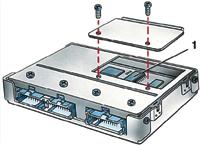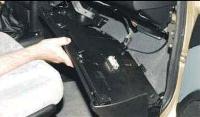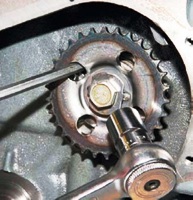The filling pipe of the fuel tank and the gravity valve are made of plastic and connected to the tank with three rubber hoses of different diameters
The larger diameter hose is used for filling fuel, the middle one is for venting the fuel tank, and the smaller one is for draining fuel condensate from the gravity valve into the tank.
The ventilation hose is designed to vent air displaced from the tank during refueling and to vent gasoline vapors through the gravity valve to the canister of the fuel vapor recovery system.
When the vehicle rolls over, the gravity valve prevents fuel from entering the engine compartment through the fuel vapor supply hose to the adsorber.
When dismantling the filling pipe, it is necessary that the tank is not completely filled with fuel.
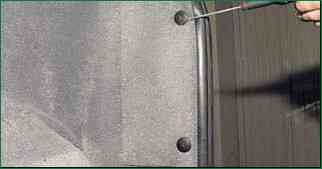
Using a screwdriver, we pry off two caps securing the upholstery of the right side of the luggage compartment and remove the caps
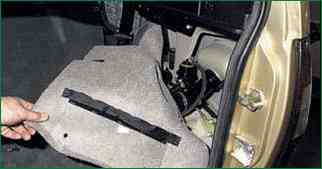
To access the filling pipe and the gravity valve, we bend the sidewall upholstery.
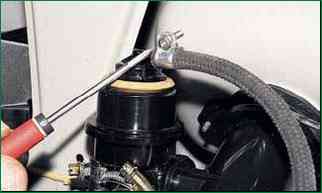
Use a Phillips screwdriver to loosen the hose clamp leading to the adsorber
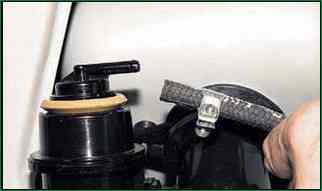
Remove the hose from the valve nozzle
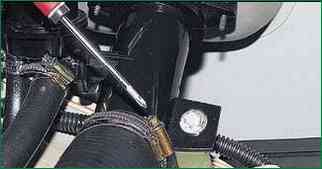
Loosen the hose clamp to the inlet pipe
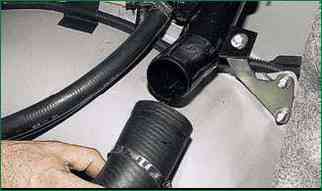
Remove the hose from the pipe
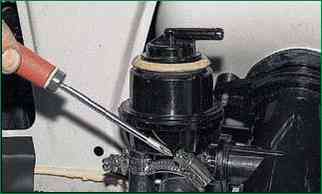
Loosen the clamp securing the fuel tank ventilation hose to the gravity valve outlet
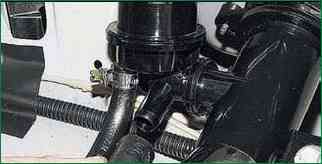
remove the hose
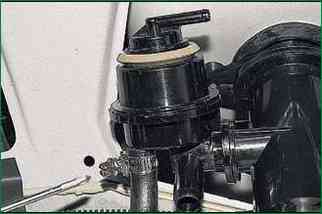
Loosen the clamp securing the fuel drain hose to the gravity valve nozzle
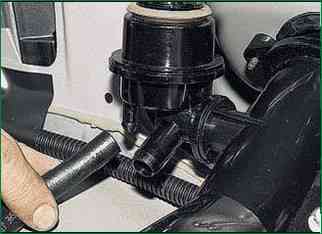
Remove the hose from the nozzle
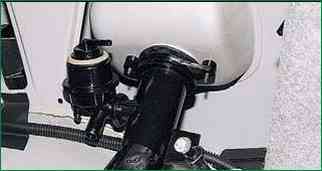
Using a 10 key, we unscrew the bolt securing the filler pipe to the bracket on the mudguard.
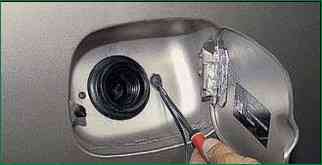
Having opened the hatch cover, unscrew the fuel tank filler cap.
Using a Phillips screwdriver, unscrew the two self-tapping screws securing the filler pipe to the body.
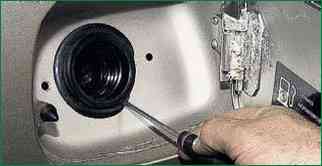
Screwdriver we move the rubber seal of the pipe inward.
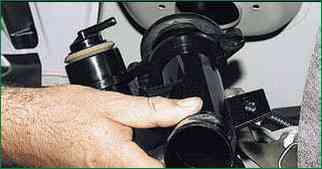
We take out the filling pipe with a gravity valve into the luggage compartment.
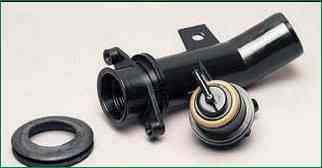
Remove the seal from the neck of the filler pipe
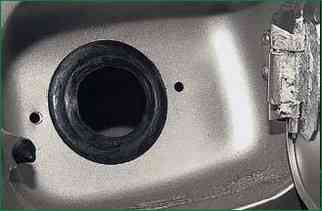
Install the seal in the opening of the body.
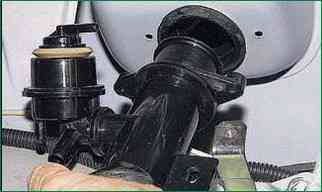
To facilitate installation, we apply grease to the neck and install a filling pipe with a gravity valve.
Further assembly is carried out in reverse order







